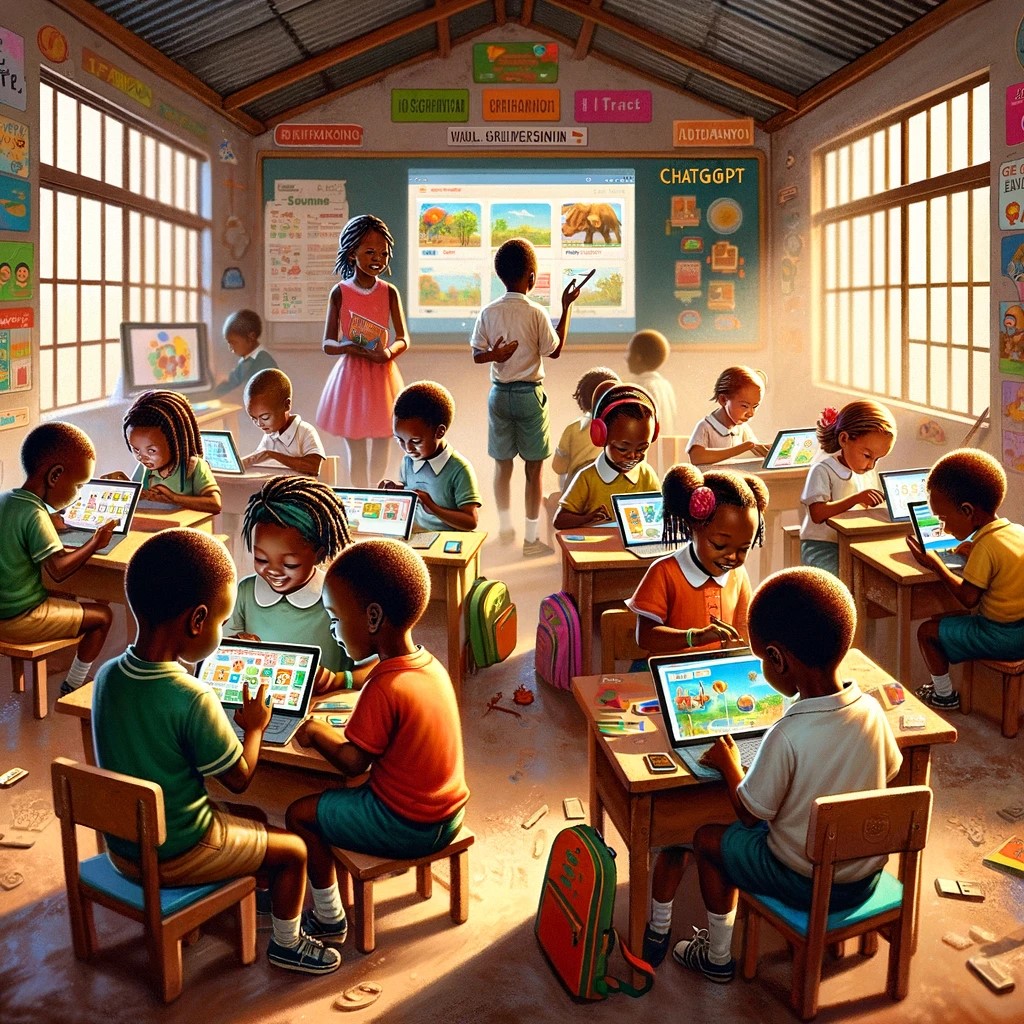By Esther Nyambura

In the ever-evolving landscape of Kenyan education, the integration of ChatGPT presents both opportunities and challenges. As educators and policymakers ponder the implications, the question arises: Are we paving the way for unprecedented educational empowerment or risking a dependency detrimental to our students’ intellectual development?
The apprehension that technology might diminish critical thinking or encourage a reliance on artificial intelligence is valid. Yet, this perspective only skims the surface of a more complex debate. The real opportunity lies in harnessing ChatGPT not as a crutch, but as a springboard for fostering analytical and creative excellence in our students.
ChatGPT’s advanced capabilities offer a unique chance to redefine educational paradigms. This tool can stimulate critical, creative, and analytical thinking, providing personalized learning experiences that traditional methods cannot match. By integrating ChatGPT thoughtfully, we’re not sidelining human intellect; instead, we’re amplifying its potential.
The successful incorporation of ChatGPT into Kenyan classrooms hinges on balance. Educators must weave this technology into the fabric of learning without overshadowing the human elements of education. To achieve this, we need practical, clear guidelines that empower teachers to use ChatGPT as a complementary tool, enhancing rather than replacing traditional teaching methods.
Addressing the concern that technology could foster laziness or dependency among students is paramount. Through strategic application and by equipping educators with the right tools and knowledge, we can leverage ChatGPT to inspire a deeper engagement with learning materials and encourage a more proactive, inquiry-based educational approach.
As the Kenyan educational landscape evolves, integrating technologies like ChatGPT offers a path to a richer, more diversified learning experience. By confronting fears and misconceptions head-on, we can use these tools to not only preserve but enhance the critical thinking capabilities of our students. In doing so, we prepare them not just for exams, but for the complexities of the real world.
By embracing ChatGPT with an informed and balanced approach, we’re not just adapting to the digital age; we’re actively shaping a future where technology and human ingenuity converge to unlock the full potential of every Kenyan student.
About Esther Nyambura
Esther Nyambura CISM, ITIL; a seasoned ICT Officer is a dynamic force bridging technology and education with notable accomplishments in Information and Cyber Security/Data Protection, Website Management, and Network Administration. Beyond her institutional role, Nyambura promotes STEM education by training children in coding and participating in STEM outreach programs in schools to showcase the fun side of science. She has collaboratively with her colleagues written a grade 4 book on Digital Technology and a Teacher’s Guide, both of which are in the publishing stages. As a prolific blogger, she shares insights on hands-on activities for kids and innovative teaching strategies. Nyambura’s commitment extends to philanthropy, actively donating educational resources to a local child’s home. Founder of the Bookiscape Book club, she fosters a love for reading in communities. With a visionary outlook, Nyambura aspires to launch a preschool catering to ages 1-5, envisioning a nurturing environment that lays the foundation for lifelong learning. Nyambura’s holistic approach defines her as a passionate advocate for transformative education.
Esther Nyambura Kamenwa will deliver a presentation titled “Nurturing Critical Minds: Addressing Concerns and Embracing ChatGPT in Kenyan Classrooms” at eLearning Africa 2024.
Join us for this insightful session and register now.


















